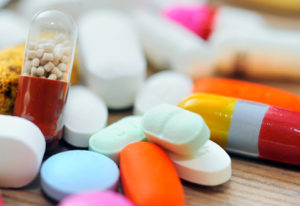African governments warned about dangers of counterfeit drugs and asked to act
 African governments have been called upon to rise up to the dangers posed by fake drugs in their countries and act to curb it. In a press release copied to ghanabusinessnews.com, ENACT, the European Union-funded project says substandard and fake medicines pose a significant threat to Africa. ENACT builds knowledge and skills to enhance Africa’s response to transnational organised crime.
African governments have been called upon to rise up to the dangers posed by fake drugs in their countries and act to curb it. In a press release copied to ghanabusinessnews.com, ENACT, the European Union-funded project says substandard and fake medicines pose a significant threat to Africa. ENACT builds knowledge and skills to enhance Africa’s response to transnational organised crime.
It pointed out that fake drugs contribute to the global threat of drug-resistant illness and undermine Africa’s ability to achieve the Sustainable Development Goals (SDGs).
“They often have a tragic impact on individuals in need of effective antimalarials, antibiotics and other medicines,” the release said.
Citing the a report on the subject, ENACT said a dearth of information makes it difficult to accurately assess the scope of the problem and formulate appropriate responses, indicating that it has been estimated that, worldwide, the counterfeit drug market is worth up to $200 billion – making it the most lucrative sector in illegally copied goods.
It further noted that globalisation has made it harder to regulate, track and quality assure medical products. Medicines are manufactured, printed and shipped to and from a number of countries. Fraud can occur at any point in the supply and distribution chain, it said.
According to the study, the trade in counterfeit medicines fuels a lucrative criminal economy, however, it found that processes for checking the quality of pharmaceutical products are neither systematic nor consistent in Africa.
It said regardless of the size of the market, the findings clearly show that the poorest and most vulnerable populations suffer the most. Citing the World Health Organization (WHO) statistics, it said 42 per cent of detected cases of substandard or falsified pharmaceuticals occurred in Africa. The London School of Hygiene and Tropical Medicine says that fake malaria drugs cause up to 158 000 deaths every year in sub-Saharan Africa, it added.
Commenting, Robin Cartwright, lead author of the policy brief titled The rise of counterfeit pharmaceuticals in Africa said, “In Africa, the domestic pharmaceutical market is growing quickly. This creates new opportunities and challenges for the continent. Currently, only 37 out of 54 African states have some level of pharmaceutical production, but as new, legitimate firms enter these markets, so will additional counterfeiters.”
ENACT is urging other African nations, like Nigeria to enact legislation that criminalises the manufacture and sale of counterfeits. Legislation should also provide clear authority and responsibility for the investigation, detection and seizure of counterfeit products. Given their ability to authenticate drugs in the supply chain, track-and-trace systems of the type officially sanctioned and used in EU and USA have shown great potential to thwart the penetration of counterfeits, it added.
By Emmanuel K. Dogbevi
